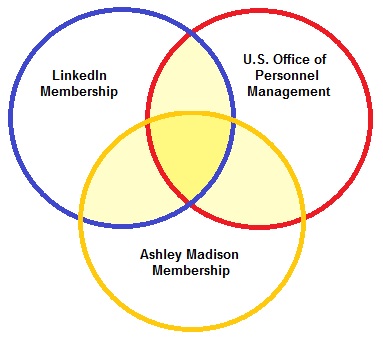Wednesday: Big Wheels Turning
Hard to believe this was made in 1982. Yeah, the production quality doesn’t match today’s digital capabilities, but the story itself seems really prescient. How can an ethically-compromised bloviating bigot manage to fumble his way into office?
Now you know. Bet you can even offer constructive feedback on how director Danny DeVito could update this script for today’s social media-enhanced election cycle.
Self-Driving Vehicles
- NHTSA issues guidelines for self-driving cars (Detroit Free Press) — FINALLY. But is it a bit too late now that Uber already has a fleet on the streets of Pittsburgh and Tesla has been running beta cars? Let’s face it: the federal government has been very slow to acknowledge the rise of artificial intelligence in any field, let alone the risks inherent in computer programming used in vehicles. We’re literally at the end of a two-term presidency, on the cusp of entirely new policies toward transportation, and NOW the NHTSA steps in? We need to demand better and faster rather than this future-shocked laggy response from government — and that goes for Congress as well as the White House. Congress fails to see the importance of early regulation in spite of adequate warning:
Legislators warned automakers at the 15 March Senate hearing that the governing body took a dim view of the industry’s ability to self-regulate. “Someone is going to die in this technology,” Duke University roboticist Missy Cummings told the US Senate during a tense hearing where she testified alongside representatives from General Motors and Delphi Automotive, among others.
Senators Ed Markey and Richard Blumenthal, who questioned car executives at the hearing, had cosponsored a 2015 bill to regulate self-driving automobiles. The bill was referred to committee and never returned to the floor. [source: Guardian]
In the mean time, we have an initial 15-point guideline the NHTSA wants to address; are they enough? Is a guideline enough? Witness Volkswagen’s years-long fraud, flouting laws; without more serious consequences, would a company with Volkswagen’s ethics pay any heed at all to mere guidelines? Are you ready to drive on the road with nothing but non-binding guidelines to hold makers of autonomous cars accountable?
- Multiple Tesla car models hackable (Keen Security Lab) — Check this video on YouTube. At first this seems like an innocuous problem, just lights, mirrors, door locks…and then * boom * the brakes while driving. These same functions would also be controlled by AI in a self-driving car, by the way, and they’re already on the road. This is exactly what I mean by the feds being slow to acknowledge AI’s rise.
- ‘OMG COOL’-like impressions from early self-driving Uber passengers (Pittsburgh Post-Gazette) — Criminy. The naïveté is astonishing. Of course this technology seems so safe and techno-cool when you have an Uber engineer and programmer along for the ride, offering the illusion of safety. Like having a seasoned, licensed taxi driver. Why not just pay for an actual human to drive?
- Tesla caught in back-and-forth with Mobileye (multiple sources) — After analyzing the May 2016 fatal accident in Florida involving Tesla’s semi-autonomous driving system, Tesla tweaked the system. The gist of the fatal accident appears to have been a false-positive misinterpretation of the semi-trailer as an overhead road sign, for which a vehicle would not slow down. But this particular accident alone didn’t set off a dispute between Tesla and the vendor for its Autopilot system, Mobileye. Another fatal accident in China which occurred in January was blamed on Tesla’s Autopilot — but that, too, was not the point of conflict between Tesla and its vendor. Mobileye apparently took issue with Tesla over “hands on” versus “hands-free” operation; the computer vision manufacturer’s 16-SEP press release claims Tesla said the Autopilot system would be hands on but was rolled out in 2015 as hands-free. Mobileye may also have taken issue with how aggressively Tesla was pursuing its own computer vision technology even before the two companies agreed to end their relationship this past July. A volley of news stories over the last two weeks suggest there’s more going on than the hands on versus hands-free issue. Interestingly enough, the burst of stories began just after a hacker discovered there’s a previously undisclosed dash cam capturing shots of Tesla vehicle operations — and yet only a very small number of the flurry of stories mentioned this development. Hmm. Unfortunately, the dash cam feature would not have captured snaps for the two known fatal accidents because the nature of the accidents prevented the camera from sending images to Tesla servers.
Artificial Intelligence
- The fall of humans is upon us with our help (Forbes) — this article asks what happens when white collar jobs are replaced by artificial intelligence. Oh, how nice, Forbes, that you worry about the white collar dudes like yourselves but not the blue collar workers already being replaced.How about discussing alternative employment for 3.5 million truck drivers?
Or the approximately 230,000 taxi drivers?
How about subway, streetcar, and tram operators (number of which I don’t currently have a number)?
How about the administrative jobs supporting these workers?This is just a portion of transportation alone which will be affected by the introduction of AI in self-driving/autonomous vehicles. What about other blue collar jobs at risk — like fast food workers, of which there are 3.5 million? And we wonder why Trump appeals to a certain portion of the working class. He won’t be informed at all about this, will not have a solution except to remove persons of color as competition for employment. But the left must develop a cogent response to this risk immediately. It’s already here, the rise of machines as AI and algorithmic replacements for humans. Let’s not wait for the next Luddite rebellion V.2.0 — or is Trump’s current support the rebellion’s inception? - But every business needs AI! (Forbes) — Uh…no conflict here at all with the previous article. Nope. Just playing the refs. Save America, people, just keep buying!(By the way, note how this contributor touts Hello Barbie chatbot as a positive sign, though Mattel’s internet-enabled Barbie products have had some serious problems with security.)
- The meta-threat of artificial intelligence (MIT Technology Review) — Doubt my opinion? Don’t take it from me, then, take it from experts including one who plans to make a fortune from AI — like Elon Musk.
Longread: Academia becomes the new white collar underclass
You may have noted Long Island University-Brooklyn’s 12-day lockout which was not really resolved last week but deferred by a contract extension. The dispute originated over a pay gap between Brooklyn and two other better paid LIU campuses. Ridiculous sticking point, given the small distance between these campuses LIU barred instructors from campus and halted their benefits during the lockout. Students walked out, infuriated by the temps who subbed in for the locked-out instructors — a cafeteria worker in one case filled in for an English instructor. LIU’s walkout won’t be the only such conflict over academic wages. To understand the scale of the problem, you’ll want to read this piece at Guernica, which explains how academia is being shaken down across the U.S., not just in Brooklyn. I remember asking an academic administrator back in 2006 what would happen when secondary education was commodified; they couldn’t imagine it ever happening. And now the future has arrived. What are we going to do about this while retaining U.S. standard in education?
Hope you’re liking the site revamp! Do leave a comment if you find anything isn’t working up to snuff.



![[image: Leo Reynolds via Flickr]](https://www.emptywheel.net/wp-content/uploads/2016/02/LiveJazzFriday_LeoReynolds-Flickr.jpg)
![[image: Sarah G via Flickr]](https://www.emptywheel.net/wp-content/uploads/2016/02/2949220013_d17943cf23_z-300x201.jpg)